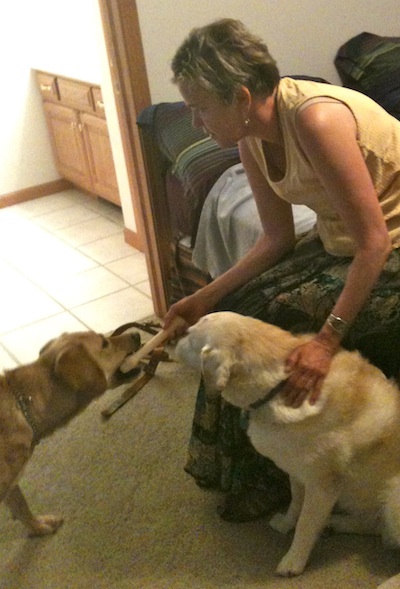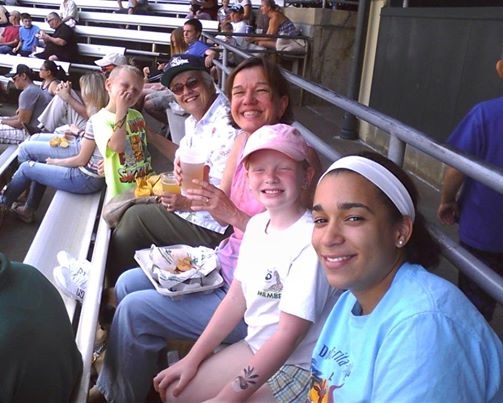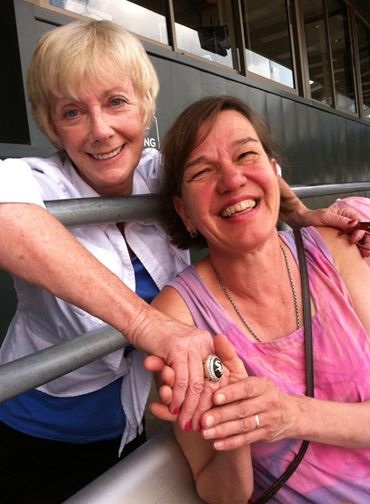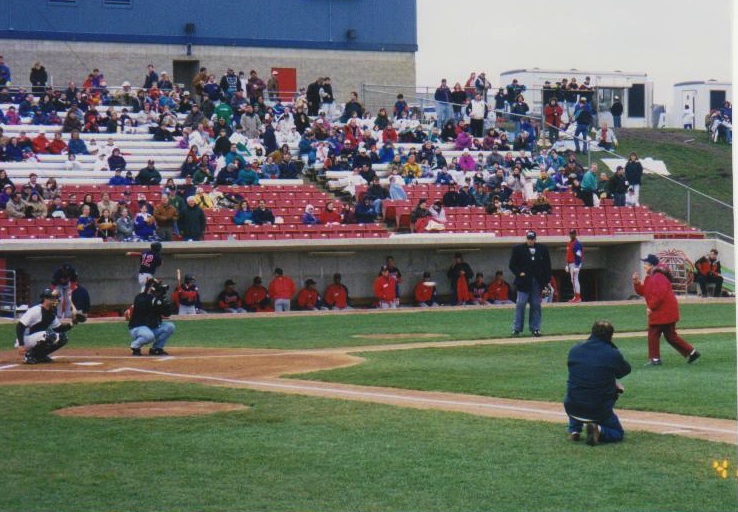To get to the steamy scene, scroll right to the bottom
February 13, 2015 • 27 Comments • Posted in blindness, careers/jobs for people who are blind, memoir writing, Mike Knezovich, technology for people who are blind, Uncategorized, writingFour different editors at University of Illinois Press went over the rough draft of my memoir before they published it. All of them suggested changes.
All of them suggested changes.
One of the most common request? Stronger verbs. They also wanted descriptions that were more precise, more colorful, more heartfelt. Now, 12 years after my memoir, Long Time, No See was published, I am leading four memoir-writing classes every week and urging writers to , you guessed it: use stronger verbs and include precise, colorful, and heartfelt descriptions in their writing.
The requests from my editors forced me to return to certain settings in Long Time, No See and focus on how events at hand made me feel at the time. Not always easy. Some of the most life-altering events in our lives are ones we’d rather forget.
An example: Surgeons operated on my left eye first. That surgery was unsuccessful. The first Try with my right eye didn’t work, either. They operated on it a second time. Each surgery was painful. Each required month-long stays at the hospital to recover, and I had to keep my face down every minute of every day of those long months away from home. My head was down when I “watched” television, when I listened to books, when I walked to the bathroom. I slept with my face in the center of a donut “hemorrhoid” pillow – eye surgeons didn’t want to risk me turning my head in the night.
In Long Time, No See I write about the retina surgeon examining my eyes after the third surgery and breaking the news to Mike and me that I’ll never see again. In the rough draft I told readers that after hearing this, Mike and I walked out of the office and headed to White Sox Park for a baseball game. Whoa! Whoa! Whoa! University of Illinois Press editors read that and said I absolutely must tell my readers what was going through my head when we found out my blindness was permanent.
Not exactly a moment I wanted to relive – who wants to re-enter that room and hear that bad news all over again? In the end, though, rewriting that scene turned out to be GREAT therapy. I had to think. When I was told I’d never see again, was I disappointed? Angry? Sad? Scared? The answer is here, in an excerpt from the published version of Long Time, No See (University of Illinois Press, 2003):
“I’m afraid there’s nothing else we can do,” he said in a tone I recognized from his final report on my left eye.
All I could think to ask was, “Can I lift my head up now?”
He said I could. Thankful for at least that, I raised my head for the first time in over a month. I was struck by a sudden feeling of freedom and relief. No more lasers, no more operations, no more weekly visits to Chicago, no more worrying whether or not this all was going to work. We’d been at this for nearly a year; now it was finally over.
I swiveled my head as if to look around. I saw nothing. Mike talked to the doctor, asking sensible questions, I suppose. Turning toward their voices, I asked if this was really it, if we’d really exhausted the possibilities.
“I’m a religious man,” the doctor answered, “and in the religion I follow we believe in miracles. I believe God has cured all sorts of ailments. This could happen with you, but there’s nothing else I can do for you medically.”
We stood up to leave. I reached out for the doctor’s hand. He clasped mine with both of his, and I thanked him for all he’d done. He was shaking. I felt sorry for him; I would’ve liked to tell him we were going to be all right.
The White Sox were in town that day. Going to a ballgame after learning I’d be blind for the rest of my life was probably a strange thing to do, but it beat heading home and sitting on our pitiful second-hand couch and wondering where to turn next. From the book:
The White Sox were having a rotten year. There were maybe 8,000 people in the stands; Floyd Banister pitched, the Sox lost. But it was strangely pleasant, sitting next to Mike with my head up, not giving a thought to eyes or surgery. We each had a bratwurst and a beer. Between bites and gulps and giving me play by play, Mike bantered with other fans, cursing the underachievers on the team. I laughed at Nancy Faust, the Sox organist—she’s famous for picking songs that play on player’s names. Mike marveled at the endurance of Carlton Fisk, and we both wondered out loud why every time we went to a game, that bum Banister was pitching.
The three-hour ride home was quiet, and once we got there, we found ourselves sitting on our miserable couch, just as we’d feared, holding hands and trying to imagine how we’d cope. Our only decision that night was to go to sleep, and today being Valentine’s Day, I’ll end the post with that steamy scene — editors agreed with me that it didn’t need more description than I had in the rough draft!
Our bed felt wonderful. I was home for good. Despite everything, a powerful relief came over me, a sense of security, such a change from how I’d felt during those months in my hospital bed. And I realized right away that sight isn’t needed under the covers.




